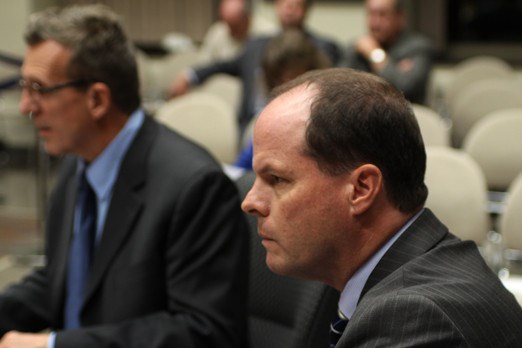A local board will have more members, more money and fewer councillors after a city council meeting Monday night..
The Thunder Bay Hydro Electricity Distribution Board will now have seven members, up from five. Those members will now receive $6,000 per year, up from $5,000 and a $100 per diem for each meeting attended. The chair of the board will also receive an additional $1,500, up from $1,250 and the chair of the board’s audit committee will receive $1,000. Council also voted to reduce the amount of city council positions on the board to a maximum of one.
The decision came after over two hours of discussion and several failed amendments.
"We think it’s fair reasonable and in keeping with the expectations of the board members. I think it recognizes their efforts," city manager Tim Commisso said.
When comparing other similar sized hydro boards across the province, board chair Ralph Falcioni said the average director receives up to $14,000. Coun. Iain Angus said the increase was a fair one. Because the rate hasn’t changed in 10 years, Angus said the change works out to a two per cent increase annually.
"We’re just bringing these in line with inflation," Angus said.
While the remuneration hasn’t changed, Falcioni said the time commitment for board members has due to changes in the Thunder Bay Hydro corporate structure. Increasing the stipend will also help with recruitment to the board Angus said.
"We want some top notch people on these boards," Angus said.
Thunder Bay Hydro president Robert Mace said increasing the board remuneration rate, now $51,800, would not be at the expense of rate payers but would be found in the company’s existing budget.
Also Monday, city council chose to stick with its three question rule. The rule limits the amount of questions per round by councillors to three but does not limit the amount of rounds. Coun. Andrew Foulds, who voted against the rule, said that in the past three months since the rule came into effect, preambles have increased and councillors have been turning one question into three making it difficult to chair city council meetings.
"There’s nothing in the last three months in terms of what’s happened at council that’s changed my mind," Foulds said, "It certainly disrupts the fluidity of the discussion."
But Coun. Aldo Ruberto said he thinks councillors have come to meetings more prepared and that the rule has given councillors more time for reflection and improved the quality of questioning.
"We’ve had less rambling," Ruberto said. "There seems to be an overall focus."
